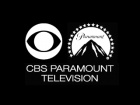Navigation/RCS
m (→RCS Thruster Maneuvering) |
m (→Reaction Control System) |
||
| Line 7: | Line 7: | ||
Background of RCS | Background of RCS | ||
| + | Depending on the starship type, the system consists of a number of thrusters mostly located at the edge of the saucer hull (generic). | ||
| + | |||
| + | |||
| + | === Thrusters === | ||
| + | (aka: Maneuvering thrusters) are used by starships and other spacecraft to make precise movements at very slow speeds in lieu of primary impulse or warp engine use. Thrusters are low-power reaction control jets that may be used for fine positional and attitudinal control, including station-keeping. They are typically used in docking maneuvers. | ||
| + | |||
| + | Thruster systems rely on Newton's Third Law which states: "Every action must have an equal and opposite reaction." | ||
| + | |||
| + | Positively and negatively charged particles are separated. Using a set of magnetic fields, these particles are accelerated to the direction '''opposite''' the direction the vessel or other body is trying to reach. Due to the impulse of these particles as they're expelled, a force acts on the body in the opposite direction, equal to the force with which the particles are expelled. As a result, the body is accelerated in this direction. | ||
== Thruster Location == | == Thruster Location == | ||
Revision as of 15:55, 16 May 2007
Maneuvering with Reaction Control System (RCS) Thrusters
Contents |
Reaction Control System
Background of RCS
Depending on the starship type, the system consists of a number of thrusters mostly located at the edge of the saucer hull (generic).
Thrusters
(aka: Maneuvering thrusters) are used by starships and other spacecraft to make precise movements at very slow speeds in lieu of primary impulse or warp engine use. Thrusters are low-power reaction control jets that may be used for fine positional and attitudinal control, including station-keeping. They are typically used in docking maneuvers.
Thruster systems rely on Newton's Third Law which states: "Every action must have an equal and opposite reaction."
Positively and negatively charged particles are separated. Using a set of magnetic fields, these particles are accelerated to the direction opposite the direction the vessel or other body is trying to reach. Due to the impulse of these particles as they're expelled, a force acts on the body in the opposite direction, equal to the force with which the particles are expelled. As a result, the body is accelerated in this direction.
Thruster Location
Insert graphics showing RCS Placement
RCS Thruster Maneuvering
- Find several graphics of Cubes using 3 vectors/axes (X Y & Z).
- Upload graphics of Mutara Nebula (Kirk v Khan) maneuvering.
Resources
- Star Trek: The Next Generation Technical Manual, pgs 87 & 88
- Federation Data-bank
- Babelfish Translation To assist in translating Federation Database Information.
- Whatever else I can find and scavenge
![]()
Rob Johnson, IC 2004-2007
15 May 2007

|
Star Trek®,StarTrek.com, Star Trek: The Next Generation®, Star Trek: Deep Space Nine®, Star Trek: Voyager®, and Enterprise® are registered trademarks of CBS Paramount Television & Viacom. All material found on these pages are for promotional purposes only. No infringements on their copyright is intended. These are Star Trek Fan Pages. |